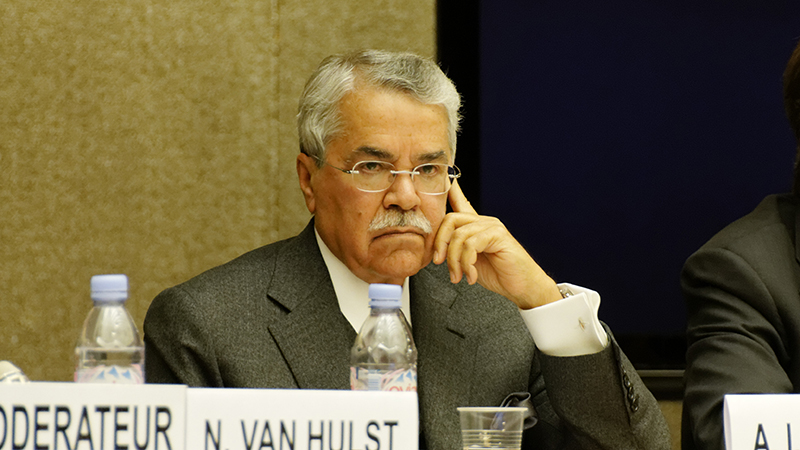The oil and gas industry will thrive despite the UN’s new greenhouse gas slashing pact, former Saudi oil chief and lead climate negotiator Ali Al-Naimi said on Friday.
Agreed by 195 countries in the French capital last December, the Paris climate deal sets out a target of zero net emissions from fossil fuels and other sources in the second half of the century. It entered into legal force on Friday.
But speaking at an event in London hosted by Chatham House, Al-Naimi dismissed the notion this meant a slow but certain demise of the oil and gas sector, which underpins the Saudi economy.
“We need to work hard to eliminate emissions but there is nothing wrong with fossil fuels,” said the 81-year-old, who led the Saudi delegation at UN climate talks from 1995-2015.
Al-Naimi pointed to Saudi investments in technologies that capture carbon dioxide and inject it into oil wells to extract more hydrocarbons as evidence the industry was adapting to a low-emission future.
There's only *1* link you'll need for #COP22. Bookmark it now https://t.co/2WQUKsX9aq #climate pic.twitter.com/2ysrLGJ0FP
— Climate Home News (@ClimateHome) October 30, 2016
The remarks underline the deep challenges facing governments as they prepare for a two-week UN climate summit in Marrakech next week, where implementing the deal is a priority.
Al-Naimi said the oil-rich kingdom supported last year’s Paris climate summit, but admitted he had to fight off “nonsensical” efforts to keep fossil fuels in the ground to prevent dangerous warming.
“Work on emissions but don’t talk about fossil fuels in ground, that would be a tragedy. We should eliminate emissions but if we [eliminate] fossil fuels we will go back to the stone age.”
“I am a believer in solar – I believe it is making great strides today and we are going to see major breakthroughs hopefully soon, but that doesn’t take away anything from fossil fuels,” he added. This year, Saudi Arabia cut its renewable energy targets from 50% to 10%, protecting demand for oil and gas.
Leading oil majors are expected to announce plans for a renewable energy fund and new efficiency measures at an event in London later on Friday.
Some are already making initial investments in clean energy technologies, although this week the CEO of Total Patrick Pouyanne told investors the solar sector was facing a “new winter” due to over-capacity and low demand.
